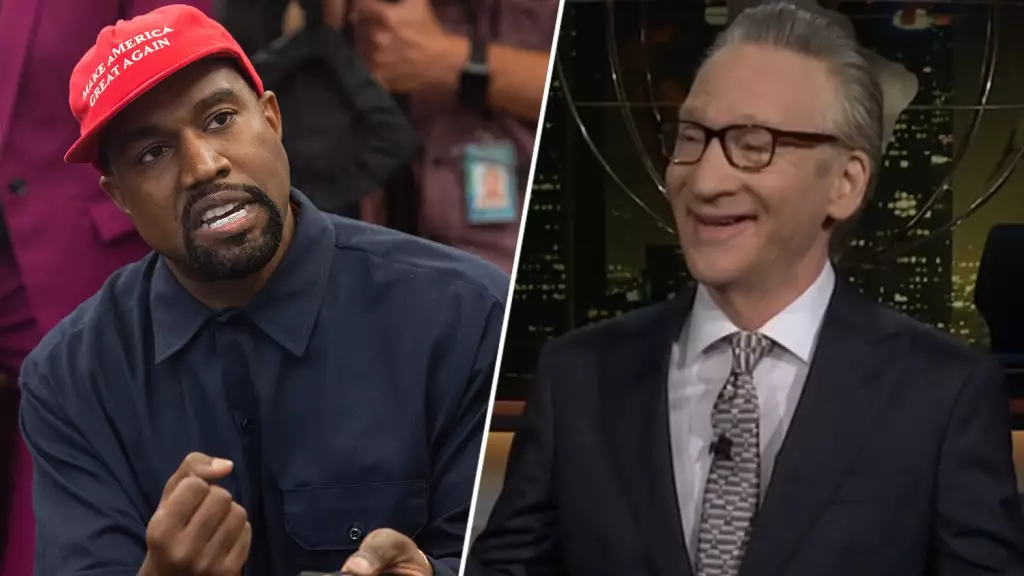In recent weeks, Kanye West has once again thrust himself into the limelight, this time through a series of antisemitic statements that have revived discussions about the responsibilities carried by public figures. During a recent episode of “Real Time with Bill Maher,” the comedian did not shy away from addressing these inflammatory comments head-on. Maher, known for his candid and often controversial opinions, described West’s remarks as not just reckless but potentially detrimental, urging society to recognize the exquisite dangers posed when influential figures engage in hate speech. This scenario serves as a stark reminder of the significant influence celebrities wield, particularly concerning their large and impressionable follower bases.
Kanye’s provocative tweets included alarming phrases such as “I love Hitler and I’m a Nazi,” which Maher sarcastically dismissed as either a desperate cry for relevance or a misguided attempt at political positioning. The backdrop to these posts includes West’s unorthodox request to Donald Trump to pardon Sean ‘Diddy’ Combs, who is currently facing serious legal challenges. The intersection of West’s support for Trump and his antisemitic rhetoric paints a troubling picture of a celebrity whose public actions potentially undermine societal progress against hate. The implications of his behavior must not be understated; it complicates the ongoing struggle against antisemitism and poses an existential risk to the communities that are affected by such rhetoric.
In a timely and critical response, the American Jewish Committee strongly condemned Kanye West’s remarks. They warned against the insidious nature of his words, highlighting that unchecked hate can breed further intolerance. This organization emphasized the urgency of addressing the rising tide of antisemitism globally, linking the public’s pragmatism concerning West’s statements to the broader societal consequences they carry. Their plea for other influential figures in the entertainment industry to denounce such hatred is a call for allies in a collective fight against discrimination, shedding light on the nuanced ways in which public figures can either uplift or endanger vulnerable communities.
The long history of Kanye West’s often erratic behavior and controversial viewpoints raises questions about mental health and personal accountability in the realm of celebrity culture. The discomfort stemming from previous incidents, including his antisemitic rants in 2022, illustrates the ongoing struggle within society to differentiate between artistic freedom and the propagation of hate. After those earlier comments, West famously issued an apology, reflecting a temporary acknowledgment of the hurt caused. However, the recent outbursts suggest that meaningful change remains elusive.
Kanye West’s latest outpouring of hate exemplifies the critical need for vigilance against the pernicious spread of antisemitism. It serves as a clarion call for society, media, and celebrities alike to foster a culture of responsibility and compassion. As public figures wield immense power, their narratives can inspire both positivity and negativity. The discourse surrounding West highlights the urgency needed to engage in proactive discussions about hate in our communities, reinforcing the idea that every voice counts in combating discrimination. Without such efforts, the consequences of unchecked rhetoric could be dire, moving us further away from a society rooted in understanding and inclusivity.
